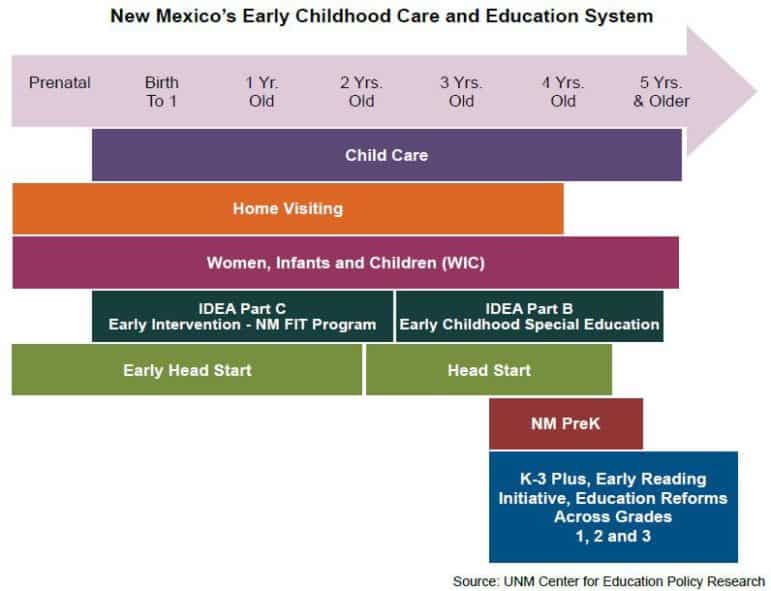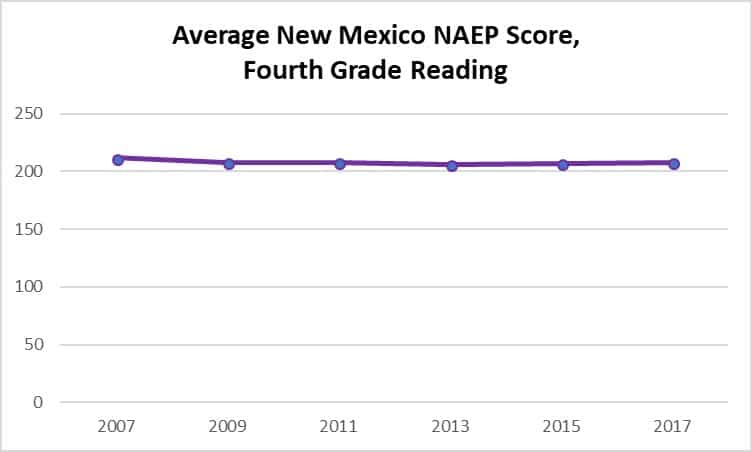 COMMENTARY: This summer and fall, expect New Mexico’s gubernatorial and legislative candidates to speak about “early childhood education” a lot.
COMMENTARY: This summer and fall, expect New Mexico’s gubernatorial and legislative candidates to speak about “early childhood education” a lot.
A lot.
Preschool-related government programs are treasured by Democrats and the left in the Land of Enchantment, and enjoy a substantial amount of support from New Mexico’s Republicans.
The problem is, solid evidence supporting preschool’s value is quite weak.

Courtesy photo
D. Dowd Muska
The Oklahoma Council of Public Affairs, the Rio Grande Foundation’s sister think tank in the Sooner State, recently released an analysis that should be required reading for candidates pledging their fealty to New Mexico’s “Early Childhood Care and Education System.” Author Greg Forster, a Friedman Fellow with EdChoice, found that when it comes to research on preschool, “the better the studies are in scientific quality, the less likely they are to find benefits.”
He quotes the Brookings Institution’s Russ Whitehurst, who in 2014 noted that “not one of the studies that has suggested long-term positive impacts of center-based early childhood programs has been based on a well-implemented and appropriately analyzed randomized trial, and nearly all have serious limitations in external validity.” In addition, “the only two studies in the list with both high internal and external validity … find null or negative impacts, and all of the studies that point to very small, null, or negative effects have high external validity.”
Forster adds, “Since Whitehurst conducted that research review … one additional study has received special attention in Oklahoma. In a 2017 study, William Gormley, Jr., Deborah Phillips, and Sara Anderson found positive results from pre-K in Tulsa visible as late as seventh grade. However, to use the researchers’ own words, the size of the positive effects they found was “rather modest.” Also, because of data limitations, they had to abandon the high-quality scientific model used in earlier Tulsa pre-K research (regression discontinuity, a method comparable in reliability to random assignment) in favor of a propensity score weighting method that uses student characteristics to predict whether or not each seventh-grade student attended pre-K. This is a much less reliable method — its value is not zero, but it must be considered less informative than the studies we have that are of top quality. Hence this study continues the pattern identified by Whitehurst.”
A dozen years after Governor Bill Richardson declared 2006 “the year of the child,” and the money began to flow, New Mexico has not seen gold-standard investigations of the state’s “investment” in preschool. But at the broadest level, there’s no doubt that progress is not being made. Below is a chart of the average scores of fourth-graders on the National Assessment of Educational Progress.
Even worse, New Mexico’s performance, relative to the nation, declined during the period. Average scores in the state were eight points behind the U.S. average in 2007, but 13 points under the 2017 mark.
No matter, of course. Expenditures continue to increase. Even Searchlight New Mexico — a liberal-advocacy website disguised as a “non-partisan, nonprofit news organization dedicated to investigative reporting and innovative data journalism” — found that in fiscal 2018, early-childhood spending will total $269.3 million.
According to the Legislative Finance Committee, in the budget approved for the 2019 fiscal year, funding “grew significantly across several state agencies. In addition to … an additional $1.5 million in general fund revenue for home visits to new families, the Human Services Department … also received $2.9 million to pilot Medicaid-funded home visiting and serve an estimated 431 families. CYFD was also appropriated $2.5 million to expand prekindergarten for 3-year-olds, while the Public Education Department … received an additional $8 million to expand prekindergarten for 4-year-olds, bringing the state total to $64 million for prekindergarten.”
Soaring spending — and no proof that taxpayers’ dollars are making much of a lasting difference. It’s something that should be on the mind of every New Mexican planning to vote in November.
D. Dowd Muska is research director for New Mexico’s Rio Grande Foundation, an independent, nonpartisan, tax-exempt research and educational organization dedicated to promoting prosperity for New Mexico based on principles of limited government, economic freedom and individual responsibility. Agree with his opinion? Disagree? NMPolitics.net welcomes your views. Learn about submitting your own commentary here.